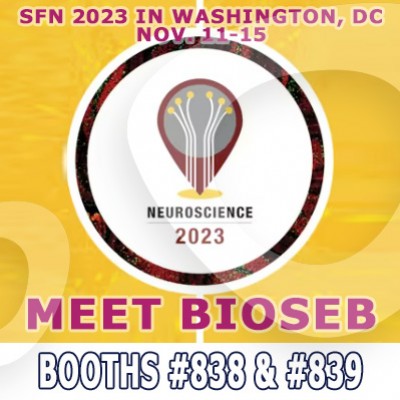Authors
C. L. Anderson, B. J. Tessler , T. B. DeMarse, M. Douglas-Escobar, C. Rossignol, R. Nelson, A. K. Kasinadhuni, M. King, P. Bose, M. D. Weiss, P. R. Carney
Lab
University of Florida, Crayton Pruitt Family Department of Biomedical Engineering, , Gainesville, Florida
Journal
Opne Access Text
Abstract
Prenatal cerebrovascular stroke can cause permanent damage to the brain followed by deficits in neuro-muscular functioning. We hypothesize that recovery can be enhanced by transcranial direct current stimulation (tDCS) through changes in cortical plasticity. Unilateral hypoxia-ischemia (HI) was produced in rats on postnatal day 7 (P7). At P21, anodal tDCS was given to HI pups for 7 days. tDCS treated HI pups showed improved weight, grip strength, gait, motor function, and concentrations of brain-derived neurotropic factor cortex ratios compared to non-treated HI animal controls. These findings support tDCS following HI as an effective therapeutic for neonatal stroke.
BIOSEB Instruments Used:
Grip strength test (BIO-GS3)

 Douleur - Allodynie/Hyperalgésie Thermique
Douleur - Allodynie/Hyperalgésie Thermique Douleur - Spontanée - Déficit de Posture
Douleur - Spontanée - Déficit de Posture Douleur - Allodynie/Hyperalgésie Mécanique
Douleur - Allodynie/Hyperalgésie Mécanique Apprentissage/Mémoire - Attention - Addiction
Apprentissage/Mémoire - Attention - Addiction Physiologie & Recherche Respiratoire
Physiologie & Recherche Respiratoire
 Douleur
Douleur Métabolisme
Métabolisme Système moteur
Système moteur Neurodégénérescence
Neurodégénérescence Thématiques transversales
Thématiques transversales Système musculaire
Système musculaire Functions de motricité générale
Functions de motricité générale Troubles de l'humeur
Troubles de l'humeur Other disorders
Other disorders Joints
Joints Système Nerveux Central (SNC)
Système Nerveux Central (SNC)  Système sensoriel
Système sensoriel
